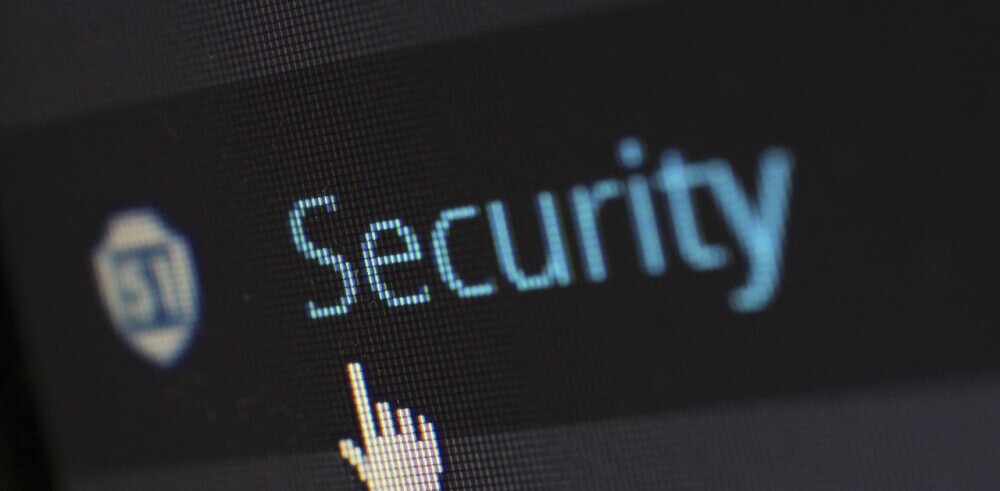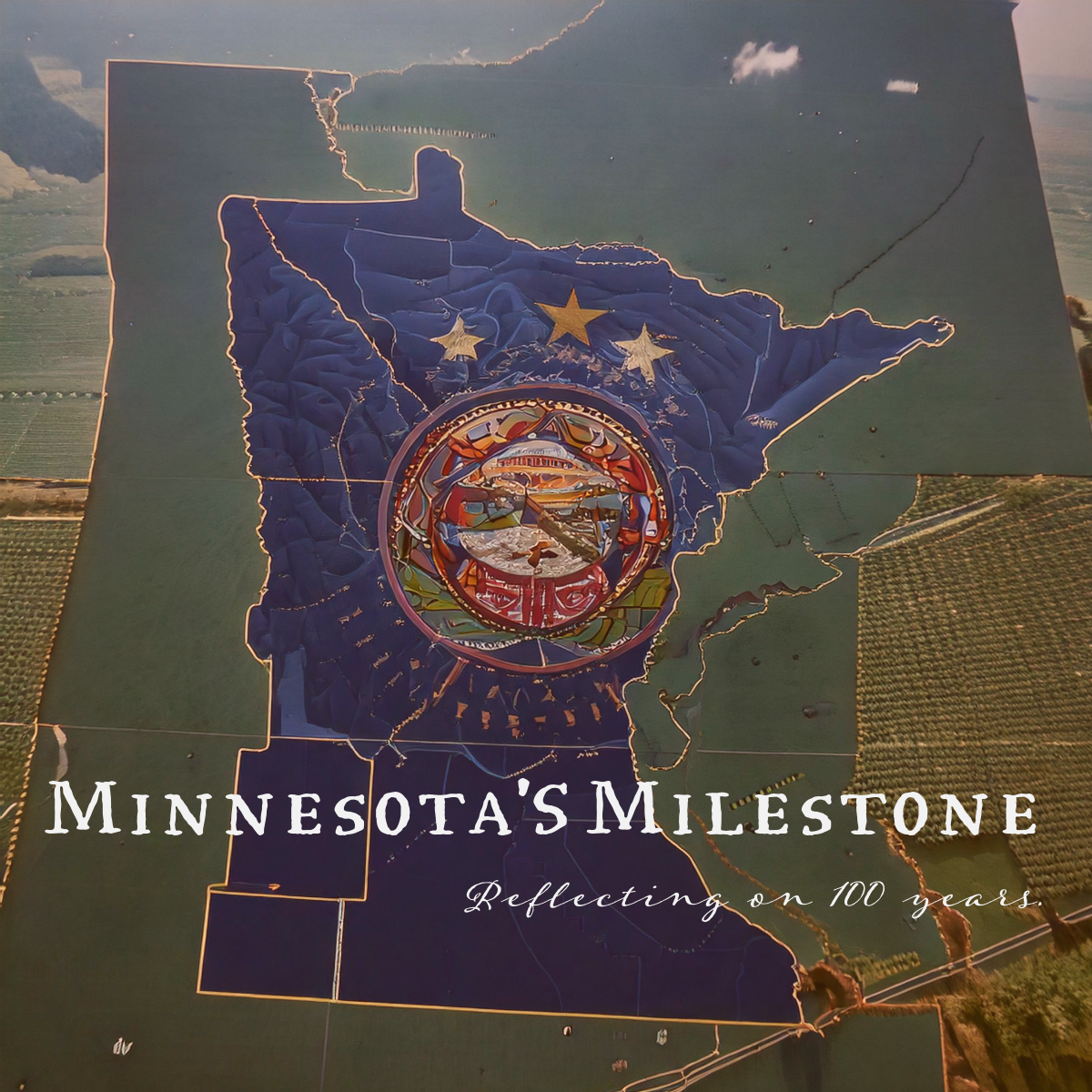Supreme Court Poised to Uphold the Law.
The future of TikTok in the United States is under scrutiny as the deadline for its parent company, ByteDance, to sell the platform approaches. President Joe Biden signed legislation requiring the sale by January 19, 2025; if not completed, TikTok will become inaccessible in the U.S. This move is driven by concerns over national security and privacy due to the app’s Chinese ownership (USA Today).
Recent Supreme Court hearings have underscored the urgency of the matter, with justices likely inclined to uphold the legislation, as Congress has identified the ownership issue as a national risk (The New York Times). The court is expected to issue a ruling soon following oral agreements heard on January 10, 2025 (Forbes). Meanwhile, other countries, including Afghanistan and Iran, have already banned TikTok over similar concerns (Newsweek).
As Minnesota residents consider these developments, many actively engage with TikTok for entertainment and community building. The potential ban raises questions about its impact on local users and businesses.
What are your thoughts? How might a TikTok ban affect your experience or the community in Minnesota?

TikTok has become a staple of digital entertainment in the United States, with its catchy dance challenges, viral trends, and amusing clips fitting perfectly into our smartphones and our lives. Over the years, it has morphed into a cultural phenomenon, influencing music, fashion, and even political activism. But like any good show, there’s always a subplot, and in TikTok’s case, it’s the swirling concerns over privacy and national security.
Recently, there’s a lot more than catchy music behind TikTok’s catchy tune. The deadline looming on January 19th, 2025, isn’t just another date on the calendar. It marks the deadline for ByteDance, TikTok’s parent company, to sell its U.S. operations. This action stems from laws and debates focused on limiting foreign influence, especially from China, over what many see as sensitive user data and national security.
While some folks might be worried about missing out on their daily dose of TikTok content, others wonder about the deeper implications of privacy and data control. But don’t fret too much yet. With politicians and courts weighing their options, the outcome could sway dramatically from where it stands today.
So, why does January 19th matter so much, and what does it spell out for the millions of American users glued to their screens? Understanding the significance of this date helps us see past the sensational headlines and into the heart of the issue—a decision that plays on both our love for entertainment and our need for security.
Exploring National Security Concerns

The debate around TikTok isn’t just about the app’s addictive nature. The crux of the issue lies in data privacy and potential national security risks. U.S. lawmakers argue that Chinese ownership of TikTok brings vulnerabilities that could expose user data to foreign exploitation.
When thinking about national security, it’s crucial to dissect what privacy really means in the digital age. The fears surrounding TikTok hinge on the possibility of user data—like location and personal information—being accessed by entities outside the U.S. This concern isn’t new or exclusive to TikTok, as similar discussions have arisen over other foreign-owned digital platforms.
Some argue that TikTok collects data similar to any other social media app. Yet, the political climate complicates things. Why target TikTok specifically? At a glance, this boils down to its economic and cultural footprint, coupled with rising tensions between the U.S. and China.
What’s essential here is how national security is interpreted when technology and geopolitics intersect. People like you and me might only notice minor changes in app behavior or data policies, but behind the curtain, these issues are shaping broader policy decisions.
For those concerned about their private data, consider reviewing app permissions and being mindful of the information shared online. While lawmakers debate these high-stakes issues, individuals can also take practical steps to safeguard their digital footprint.
The Legislative and Judicial Landscape

The question of TikTok’s future in the U.S. rests firmly in a complex web of legislative actions and judicial scrutiny. The recent decision by President Joe Biden to enforce a sale of TikTok’s U.S. operations has set a precedent that bridges politics with technology concerns.
In terms of legislative activity, this directive is rooted in the government’s broader strategy to curb foreign control over platforms that handle vast amounts of personal data. It’s worth noting that this isn’t a unilateral decision. Both the legislative and executive branches are actively involved, insisting that Chinese ownership poses consistent threats to national interests.
The courts play a pivotal role, with the Supreme Court at the heart of upcoming decisions. Their deliberations reflect the tension between safeguarding national security and maintaining an open, competitive digital market. Recent hearings have placed Congress’s stance—viewing Chinese ownership as a national risk—under a bright legal spotlight.
What’s curious is how the various actors in this narrative—across legislative and judicial pools—interpret the same set of facts about data privacy differently. While the legislative bodies focus on cutting off perceived threats at the source, the judiciary weighs the balance of power, providing a platform where ideas are challenged and evaluated rigorously.
For the average onlooker, the intricacies of legal debates can seem overwhelming. However, staying informed is key. Following news from reputable sources can bridge the gap, allowing us to navigate and understand how these legal battles might shape what apps we use and the privacy we can expect in future tech landscapes.
TikTok’s Response and ByteDance’s Stance

As the drama unfolds, TikTok and its parent company ByteDance have found themselves on a challenging terrain. Despite the looming directives from the U.S. government, ByteDance isn’t planning on budging easily, firmly refusing to sell TikTok’s U.S. operations.
This stance echoes a broader narrative about ownership rights and the ability to operate freely in the global market. ByteDance argues that the forced sale overlooks certain realities about global digital companies, particularly how data handling protocols can be managed independently of geographical ownership.
Globally, this resistance could shift the landscape. If ByteDance agrees to sell, it sets a precedent, potentially affecting not just TikTok, but other foreign-owned entities operating in the U.S. and beyond. A sale could stabilize tensions, but it might also impact ByteDance’s hold in the tech market, introducing new players or partnerships.
Understanding ByteDance’s position requires a peek into their strategic playbook. They might be leveraging operations in other territories as a form of negotiation or exploring technological adjustments that might fulfill U.S. security demands without a sale.
For users here, it’s a waiting game. While ByteDance holds firm, American users are caught in the crossfire, knowing that their continued access depends on these high-stakes decisions. In the meantime, it’s wise to consider backup plans and stay updated, as changes to access or functionality could come swiftly and with little warning.
Historical Parallels and Global Bans

Looking back at the history of digital app bans gives us some context for the TikTok saga. This isn’t the first time countries have moved to limit digital platforms over security concerns. For instance, apps and social media sites have faced shutdowns or restrictions globally, usually over privacy issues or political reasons.
Countries like Afghanistan, Iran, Bangladesh, and a slew of others have already gone down this path with TikTok. Each case offers lessons in how governments manage digital threats, balancing between genuine concerns and overreach. It’s interesting to note the varied reactions across these regions, reflecting differing political climates and societal norms.
These international precedents show both the challenges and repercussions of banning widely-used digital platforms. For TikTok, the implications extend beyond just being blocked in one more country. A U.S. ban could ripple through global markets, stirring caution or imitation among other nations with similar security worries.
From a historical perspective, these bans often raise questions about censorship, digital freedom, and the future of international tech collaboration. It’s a slippery slope between safeguarding privacy and stifling innovation, something policymakers continuously grapple with.
For those of us watching the developments closely, these examples highlight the importance of engaging in dialogue about what data privacy means and how we can manage it without stifling creativity and growth in the digital world. Keeping informed and participating in such discussions can foster a more balanced approach as these technologies evolve.
Minnesota in Focus: Regional Impacts and Industry Considerations

TikTok’s potential ban carries unique implications for states like Minnesota, where digital innovation and a burgeoning tech scene have become key economic drivers. With TikTok’s vast user base, including numerous influencers and businesses, a ban could stir significant ripple effects locally.
Minnesota’s thriving creative community includes many who’ve leveraged TikTok to grow their reach. From musicians to visual artists, countless creators call the state home. These individuals rely heavily on social media platforms to spread their work and engage audiences. Losing TikTok could mean a substantial shift in strategy and outreach.
Additionally, businesses here use TikTok as much more than a platform for teenagers. Companies, particularly in retail and hospitality, harness the app’s marketing potential. A ban might push these businesses to pivot quickly, seeking alternative digital avenues to maintain engagement with a tech-savvy audience.
So, how might this play out for Minnesotans deeply embedded in TikTok’s digital ecosystem? Adaptability will be crucial. Businesses and content creators may need to explore and invest in other platforms like Instagram Reels or YouTube Shorts to fill the potential void left by TikTok.
For Minnesota residents, staying informed and prepared for possible changes is key. Engaging in statewide discussions on tech policy and influence can provide a community-driven perspective on digital regulations. There’s a collective interest in ensuring that the digital landscape continues to support both creativity and security.
Conclusion: What Lies Ahead for TikTok in America?
With deadlines and debates intensifying, the future of TikTok in the United States hangs in a delicate balance. The choices made in the coming months could set precedents for how digital platforms are governed, potentially reshaping the internet landscape as we know it.
If TikTok remains accessible, it might come with new regulations or oversight. On the flip side, a ban would push users, especially businesses and content creators, to adapt swiftly as they transition to other platforms. This shift could lead to innovation, sparking novel ways to engage audiences digitally.
This unfolding situation underscores the importance of finding common ground between safeguarding data privacy and encouraging a vibrant digital economy. Policymakers, tech companies, and users alike need to collaborate, ensuring that security doesn’t stifle creativity.
For Minnesotans and indeed everyone affected, voicing opinions is vital. Whether through local town halls or online forums, sharing perspectives and concerns can influence how technologies evolve. Your thoughts matter as they echo the broader public sentiment that lawmakers and tech companies cannot ignore.





The potential TikTok ban is such a tricky topic, it’s like watching a suspenseful movie where you’re not sure if the hero will make it out unscathed. On one hand, I get the national security concerns; protecting data privacy is huge, especially when foreign ownership is in the mix. But on the other hand, TikTok isn’t just an app anymore, it’s a creative hub, a marketing tool, and even a livelihood for so many people. It’s wild to think about the ripple effect this could have on influencers, small businesses, and even regular users who rely on it for connection and entertainment. Whether the January 19th deadline leads to a sale or a ban, it’s clear that the digital world we’ve come to know is constantly evolving, and adaptability will be key for all of us.
What a vivid analogy! It really does feel like a suspenseful movie unfolding in real time. You’ve captured the essence of this situation perfectly—balancing national security with the cultural and economic impact of a platform like TikTok is no easy feat.
As you pointed out, TikTok has evolved far beyond just an app; it’s a thriving creative space and livelihood for many. The potential ripple effects on influencers, small businesses, and casual users can’t be underestimated. It makes you wonder how many stories, connections, and innovations might be lost if drastic actions are taken without thoughtful consideration.
You’re absolutely right about the importance of adaptability. The digital landscape is constantly changing, and it will be interesting to see how everyone—users and businesses alike—navigates the outcomes of this situation. Thanks for sharing your insights; it’s discussions like these that highlight the complexities of our digital world!
Hi Jake,
This is a really interesting and timely topic. The potential ban on TikTok raises a lot of questions about privacy, national security, and free speech. I’m curious to hear others’ opinions on whether the ban is justified given the concerns about data privacy and national security. On one hand, it’s important to protect user data, but on the other hand, banning a platform that millions of people use for creative expression and connection seems extreme.
What do you think about the balance between security and freedom?
Regards
AA
Hi AA,
Thank you for your engaging comment! You’ve highlighted a crucial tension in the debate over the potential TikTok ban: balancing user data protection with the freedoms that allow for creative expression and connection.
On one hand, the need to safeguard personal data and address national security concerns is undeniably important, especially in an age when our digital lives are so intertwined. On the other hand, a ban could indeed feel like an extreme measure, especially for the millions who rely on the platform for creativity and community.
I believe the key lies in finding alternatives that prioritize both security and freedom. Rather than outright bans, perhaps more comprehensive regulations and transparent practices could provide users with peace of mind while still allowing platforms to thrive. Open discussions about these topics are essential, and it’s great to see people like you engaging in this conversation.
Thank you for sharing your perspective—I look forward to hearing more thoughts on this complex issue!
Regards,
This is such a timely article on the current news and updates from around the world. As I write this, I’m listening to the BBC even though on a different topic. A few hours ago, I was listening to the same story. Just wondering though how this ban could improve security in the US in any way.
Is this ban not entirely political rather than security? When will we humans learn to live together and only fight real enemies of humanity instead of each other, such as climate change and natural disasters? I do have a lot of questions because I can’t understand these moves.
John
Hi John,
Thank you for your thoughtful comment! You raise some important questions about the motivations behind proposals like the TikTok ban. It’s true that security concerns often intertwine with political agendas, leading to a complex landscape where motivations can be hard to unpack. Many share your curiosity about how such measures genuinely contribute to improving security versus being driven by political posturing.
Your point about focusing on pressing global challenges like climate change and natural disasters resonates deeply. It’s crucial for us to channel our energies into solving the problems that really affect humanity across the board. The hope is that through open dialogues and collaboration, we can move towards a future where we address real threats together while fostering understanding and cooperation, rather than division.
Thank you for engaging with this topic and sharing your perspective—it’s conversations like these that can help clarify the broader implications of such decisions!
Best,
I have mixed feelings when it comes to TikTok. One one hand it is Chinese owned and viewed as a severe security risk. This is a point I believe holds some weight. China historically says one thing while attempting to another.
On the other hand, content creators have invested time and energy creating their brands. This will wipe out their lifestyle.
Which may not be all bad if you stop to think about it. Influencers are not all angels. They too use their platform to promote political and social views to sway opinion much like China. One of the negatives I can highlight is the online bullying or filming rather than helping those in need when life is threatened.
So if asked if I am for or against the ban. I hope it happens or is sold then regulated to improve the user experience for ALL users.
Thank you for this post. Very informative!
Michael
Thank you for sharing your nuanced perspective! It’s clear that the situation with TikTok brings out a variety of opinions and concerns. You make a valid point about the security risks associated with a platform owned by a foreign entity, particularly given historical context. It’s essential to prioritize user safety and data privacy in our increasingly digital world.
At the same time, I can understand the dilemma regarding content creators who have poured their passion and effort into building their brands. It’s a delicate balance, and while influencers certainly contribute to the online landscape, there are valid concerns about the responsibilities that come with such platforms, such as the potential for spreading misinformation or fostering negative behaviors.
Your call for a solution that involves regulation and oversight reflects a hopeful approach to improving user experience and safety for everyone. Thanks again for contributing to this important discussion—your insights help illuminate the complexities of this issue!
I’m a teacher and I’ve used TikTok to create content for my students. It’s a great way to connect with them outside the classroom and make learning fun. The creative tools are amazing and it’s helped me make complex subjects more accessible. I also appreciate the educational content created by other teachers. This is just something to think about if they decide the ban is necessary. It would be a massive loss for education if it all goes away.
Thank you for your valuable insight! It’s wonderful to hear how you’ve utilized TikTok to enhance your teaching and engage with your students in such a meaningful way. The creative tools available on the platform truly open up innovative ways to present complex subjects and make learning more enjoyable.
The educational community on TikTok is thriving, with teachers sharing incredible resources and ideas that can inspire one another. If a ban were to happen, it could indeed be a significant loss, not just for educators like you but also for students who benefit from this dynamic and relatable form of learning.
Your perspective highlights the importance of considering the educational implications in discussions about data privacy and security. Let’s all hope for a balanced approach that ensures safety while still allowing teachers to connect with their students in engaging ways!
I think it would be a huge pity if this popular platform had to disappear in the United Stares. It could also mark the beginning of the end of this platform and it has both great entertainment value as well as marketing value. We use it a lot for our dance studio to share dances and content with friends and family of the dancers and it is also so convenient and easy to use.
I hope that all this legislation can be sorted before the 19 th, but if it does dissolve the human race will find some other way to replace this platform.
Thank you for sharing your thoughts! I completely agree that losing TikTok would be a significant loss, especially for communities like yours that use it to showcase talent and connect with friends and family. Its blend of entertainment and marketing value is hard to match, providing an accessible way for businesses and creators to engage with audiences.
It’s fascinating to think about how quickly digital spaces evolve; if TikTok were to disappear, humanity’s tremendous adaptability would surely lead to new platforms emerging to fill that gap. But I share your hope that lawmakers can find a solution that protects user data while preserving the positive aspects of the platform.
Let’s keep our fingers crossed for a fair resolution before the deadline. Thanks again for your input—it’s truly important to consider the human element in these discussions!
This is such a timely and thought-provoking article about the potential TikTok ban in the U.S. The concerns surrounding national security and data privacy are valid and deserve serious attention, but it also makes me wonder about the broader implications of such a decision.
For one, how would banning TikTok impact small businesses and creators who rely on the platform for their income? From my experience, many entrepreneurs have successfully used TikTok’s algorithm to grow their brands and connect with audiences they might not have reached otherwise. A ban could create a significant void for these creators, especially if alternative platforms don’t offer the same level of reach and engagement.
On the other hand, I can see the argument for tighter regulation of apps that handle sensitive user data. Do you think a complete ban is the best solution, or would more stringent oversight and transparency from TikTok’s parent company be a better compromise?
It’s definitely a complex issue, and I’m curious to hear how others feel about the potential ripple effects this could have on users, businesses, and the digital ecosystem overall.
Thank you for your insightful comment! You’ve brought up several important points regarding the potential TikTok ban and its broader implications. I completely agree that national security and data privacy issues are critical, but we must also consider the impact on small businesses and creators who have leveraged TikTok to grow their brands and connect with audiences.
Many entrepreneurs have found great success on the platform, and a sudden ban could indeed create a significant void in their marketing strategies and audience engagement. While it’s important to prioritize user data security, I also believe we should explore solutions that don’t hinder the creativity and opportunities that platforms like TikTok provide.
Striking a balance through more stringent oversight and transparency, especially from TikTok’s parent company, may be a more effective compromise. This way, we can address concerns while still allowing businesses and creators to thrive in the digital landscape.
Your curiosity about the ripple effects of such decisions is shared by many, and the conversation around this topic is definitely needed. I look forward to hearing more perspectives on this complex issue!
Hi there,
This article does a good job explaining the concerns about TikTok and the risks to privacy and security. With the deadline for ByteDance to sell TikTok coming up, it makes me wonder—if TikTok gets banned, what will be done to make sure other apps from foreign companies don’t cause the same problems? Will there be clear rules for all apps, or will it only be decided one at a time?
I would love to know, thank you!
Hi there,
Thank you for your thoughtful comment! I appreciate you taking the time to engage with the article. The concerns you raised about TikTok and foreign apps are definitely valid and highlight a broader issue regarding data privacy and security. If TikTok were to be banned, it would be crucial for lawmakers to establish clear, comprehensive guidelines to address the risks posed by all foreign applications—not just focusing on one at a time.
Any approach moving forward should prioritize transparency, user data protection, and a competitive environment for digital platforms. I believe this is an ongoing conversation that needs input from various stakeholders, including tech companies, lawmakers, and consumers. As this situation evolves, I’m eager to see how it influences the policies surrounding app security in general.
Thanks again for your insightful question!
Best,